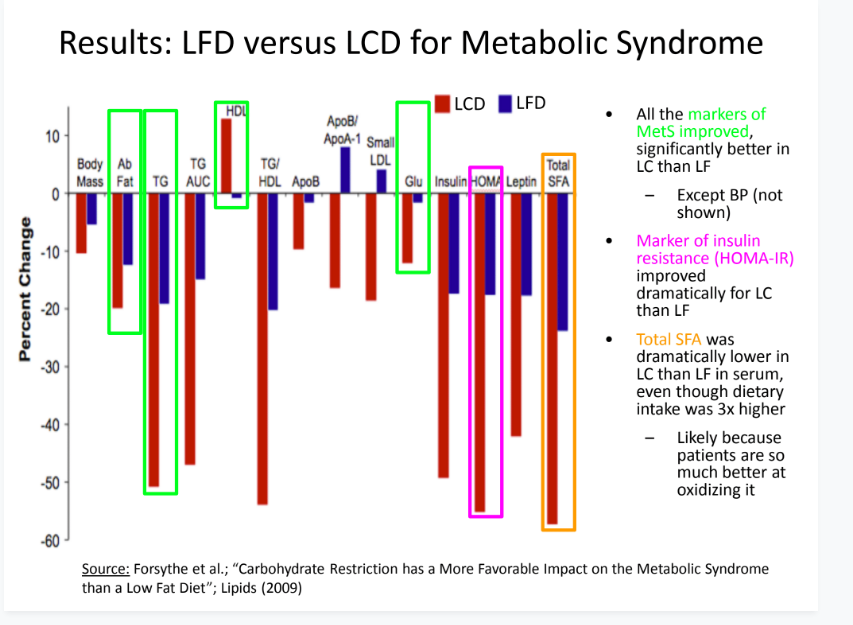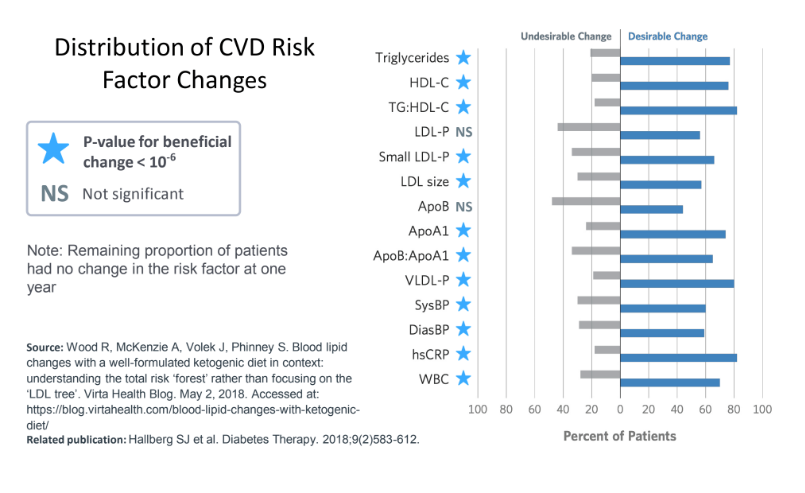 The first speaker, Miriam Kalomian, EdM, MS, CNS knows more about using ketogenic diets to fight cancer than anyone I know. Finding keto allowed her 6 year old son Raffi and extra 6 quality years of life after he was diagnosed with a brain tumor. She now shares this knowledge with people stricken by the scourge of cancer all over the country. You can find out more about that on her website. She uses a 3 pronged approach. First is limiting carbohydrates to induce ketosis. Second, limiting protein so there is not excess protein to fertilize the cancer and third, calorie restriction without malnutrition. She has learned this mostly from collaboration with her friend and mentor Dr. Thomas Seyfried. She shared the news that Dr. Siddhartha Mukherjee, a world renowned oncologist and author of the wonderful book on the history of cancer that I have read and would commend to everyone called “The Emperor of All Maladies” is going to do a trial to determine if a ketogenic diet could improve the effectiveness of a cancer-drug (Aliquopa) in 40 patients with lymphoma and endometrial cancer. She pointed out that not only are ketogenic diets being used to treat cancer but also Alzheimer’s, MCI, Parkinson’s, Multiple Sclerosis, ALS, Autism, ADHD, TBI Spinal Cord Injury and Migraine. And in the mental health field it is being tested for Depression, Anxiety, Bipolar disorder and Schizophrenia.
The first speaker, Miriam Kalomian, EdM, MS, CNS knows more about using ketogenic diets to fight cancer than anyone I know. Finding keto allowed her 6 year old son Raffi and extra 6 quality years of life after he was diagnosed with a brain tumor. She now shares this knowledge with people stricken by the scourge of cancer all over the country. You can find out more about that on her website. She uses a 3 pronged approach. First is limiting carbohydrates to induce ketosis. Second, limiting protein so there is not excess protein to fertilize the cancer and third, calorie restriction without malnutrition. She has learned this mostly from collaboration with her friend and mentor Dr. Thomas Seyfried. She shared the news that Dr. Siddhartha Mukherjee, a world renowned oncologist and author of the wonderful book on the history of cancer that I have read and would commend to everyone called “The Emperor of All Maladies” is going to do a trial to determine if a ketogenic diet could improve the effectiveness of a cancer-drug (Aliquopa) in 40 patients with lymphoma and endometrial cancer. She pointed out that not only are ketogenic diets being used to treat cancer but also Alzheimer’s, MCI, Parkinson’s, Multiple Sclerosis, ALS, Autism, ADHD, TBI Spinal Cord Injury and Migraine. And in the mental health field it is being tested for Depression, Anxiety, Bipolar disorder and Schizophrenia.
 Dr. Michael Ruscio, DC is a chiropractor with a lot of interest and experience in using a variety of diets including low carb to treat his patients. You can find more about Dr. Ruscio and the books he has written on his website. He spoke at length about the need to individualize dietary recommendations based on the condition the patient was suffering from. He feels that fiber has never been shown to be essential in a persons diet. He feels that people with Small Intestinal Bacterial Overgrowth Syndrome should be treated with antibiotics and spoke at length on the condition. He pointed out that many people do well on higher carb, lower fat diets. He did not feel gluten was bad for everyone and felt that depriving everyone of wheat because 5-10% had a problem with it was unnecessary.
Dr. Michael Ruscio, DC is a chiropractor with a lot of interest and experience in using a variety of diets including low carb to treat his patients. You can find more about Dr. Ruscio and the books he has written on his website. He spoke at length about the need to individualize dietary recommendations based on the condition the patient was suffering from. He feels that fiber has never been shown to be essential in a persons diet. He feels that people with Small Intestinal Bacterial Overgrowth Syndrome should be treated with antibiotics and spoke at length on the condition. He pointed out that many people do well on higher carb, lower fat diets. He did not feel gluten was bad for everyone and felt that depriving everyone of wheat because 5-10% had a problem with it was unnecessary.
The final speaker and what a way to end was Dr. Stephen Phinney who has been one of the main guides on my own low carb journey. He is one of the most published and respected researcher in the country on ketogenic diets. He started off talking about how ketogenic diets lower the levels of inflammation that are at the root of heart disease and so many other degenerative diseases by lowering inflammation in the mitochondria and discussed the seminal study done in 2014 “Suppression of oxidative stress by β-hydroxybutyrate, an endogenous histone deacetylase inhibitor.” which showed that one of the ketone bodies, beta-hydroxybutyrate acted like a hormone to turn of a pathway that caused inflammation. He recalled how some of the work he had done early in his career showed that the higher the white blood cell count was the higher the risk of heart disease and noted it was a good marker of total body inflammation. He pointed out how in this study in 2008 that showed Rosuvastatin (Crestor) prevented heart attacks in people with elevated C-reactive protein (CRP) (a marker of inflammation) that the medication lowered both LDL Cholesterol and CRP and thus it could easily be the anti-inflammatory effect of the medication and not the LDL lowering that produced the benefit. He spoke at some length about the Forsythe Study that compared a low carb diet against a low fat diet in the treatment of patients with the metabolic syndrome. He noted how all the important cardiac markers and evidence of insulin resistance, especially the HOMA-IR, a highly sensitive measure of insulin resistance went dramatically in the right direction in the low carb group compared to the low fat group as shown by this graph and also reduced the important inflammatory markers studied while these went up in a low fat diet. :

Dr. Phinney has teamed with several other researchers and an internet technology company called Virta Health to design a model of using internet technology and telemedicine to provide very aggressive support for patients who are guided in a ketogenic diet to treat their diabetes. They have initiated a randomized controlled trial testing this against a control group who are receiving therapy including a traditional ADA diet and routine diabetic care. The first year results have been published in this article. Dr. Phinney went on to summarize the highlights. The Virta approach was quite sustainable with 83% still engaged at 1 year. Virta patients lost over 12% of their body weight. Their white blood cell counts dropped by by 1.3 and CRP dropped by 39% showing decreased inflammation. Their average Hemoglobin A1c went from 7.5% (diabetes = >6.5%) to the non-diabetic level of 6.2%. They got off of an average of 54% of their diabetic medications. With the exception of LDL-P and Apo B all risk factors for cardiovascular disease moved significantly in the favorable direction.

Here are the conclusions from the study:
- There is no drug approved for chronic use that can deliver these potent anti-inflammatory benefits without side effects.
- A well-formulated ketogenic diet has anti-inflammatory effects that are both very potent and broadly based – as opposed to a drug that is focused upon just one target enzyme or bioactive compound (e.g., IL-1 beta)
- Given adequate instruction and support, most people who choose to try a well-formulated ketogenic diet can sustain it long-term and a majority will likely benefit.

Please address questions or comments to the following email:
ZeroCarbDoc@gmail.com
Please join my Facebook Group – Zero Carb Doc

Recent Comments